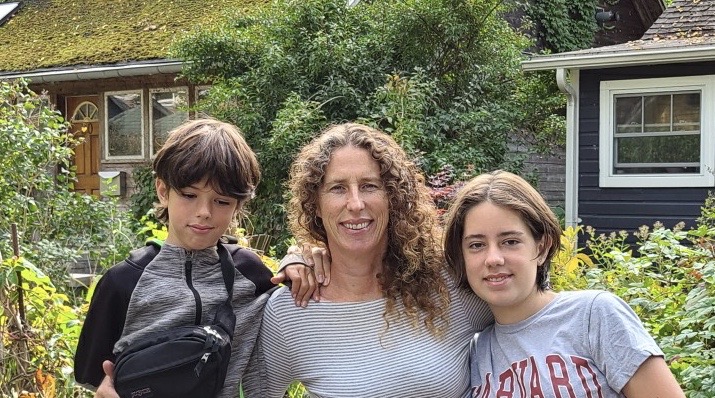There have been a lot of ups and downs as the school year commences. In-person classes are not what they were previously, and virtual classes keep getting postponed. There are promises for learning opportunities to come, that this too shall pass, and things will get better. But they don’t seem to be, and with no end in sight and Covid numbers creeping into a second wave, many families are feeling frustrated, confused, bogged down, and scared.
I read the news and follow my friends on social media. And there is an underlying sense of fear and anxiety as we move into cooler weather and rising numbers of new cases. None of us have experienced anything like this before and most of us feel at a loss. Many of us do not have the tools to cope with this new normal of uncertainty.
I am a parent of two school-aged children in grades 5 and 8 attending in-person classes at two different schools. I chose for my children to attend in-person classes as their class sizes and schools are relatively small. We felt confident about returning to school with this in mind. But within the first few weeks, there were abrupt staffing changes in one of my child’s school and the other has to travel via TTC subway and bus to get to school each day. There is not a day that goes by that I don’t worry about my children and their physical and mental health.
I am also an occasional teacher. I have had the privilege to be able to work from home during the lockdown period awaiting a position in the country’s largest school board with some of the largest sized schools. I considered teaching virtually, however, with the small size of my house and the possibility of a second lockdown, I decided to take on occasional teaching instead as it allowed for more flexibility. And now I add my own physical safety to the list of worries.
I decided to go back to teaching in-person because I needed something for myself. My partner and I spoke about this decision at length, and I needed to be open and vulnerable with him and my children to explain the decisions we were making. They needed to know how I felt. I needed a break from my home and my everyday surroundings. And as a helper, I needed to feel like I was helping. I needed to feel my cup full again and I know that teaching brings that to me.
I decided to teach at a school that had a significant commute. I ride a bike. I needed to exercise again and feel the wind, rain, and sun on my face. I needed to be open to try something new, even in the face of adversity. I needed to let myself be vulnerable and reach within myself for the resiliency I have that has brought me to where I am now. I need this for my mental health and my well-being. I need this for my family. Because I know that if I provide myself with the things that I need in the best way that I can, I will be better able to equip myself for my family in the face of any changes to come.
Being vulnerable is not an easy task, especially when we are scared. It asks us to step out of our comfort zone, a place where most of us are sitting currently. Being vulnerable presents an opportunity to be open, to change, see different perspectives, build intimacy, and connection. All of these are key to our well-being. And as adults caring for children, when our mental health is strong, we are better able to help our children cope and navigate the immense amount of uncertainty we are all facing. Examining and understanding our vulnerability is essential for the mind’s well-being and there are several strategies that can help us get there.
Ask for what we need: Asking for help can be daunting, especially during a time where so many of us are struggling. People still want to help and help is there.
Be willing to expose our feelings: Taking a risk to expose yourself to someone else can be hard, however, if we want others (our partners, our children) to share with us how they feel, the first step comes from ourselves.
Say what we want: No one is a mind reader. It is important for us to learn how to express our wants as well as our needs. Doing so may lead to a conversation that creates greater understanding.
Express what we really think and feel: Being able to express our thoughts and feelings can be a challenge, especially when we don’t know what to think or how we feel. And that is OK. Attempting to find the words can also create the space to grow.
Slow down and be present: Most importantly, we need to slow down and be present. We need it for ourselves and we need it for our kids.
ADDITIONAL RESOURCES
For Children: A video explaining how to turn vulnerability into a superpower
For Youth: Heartfelt middle grade books that will make you cry
For Caregivers:The power of being vulnerable as a parent
For Educators: Ways to create safety by modeling vulnerability

